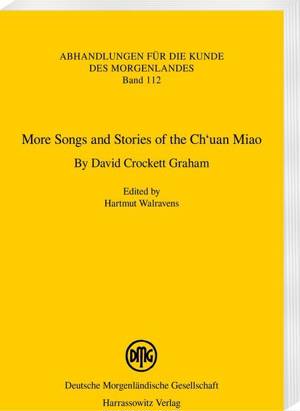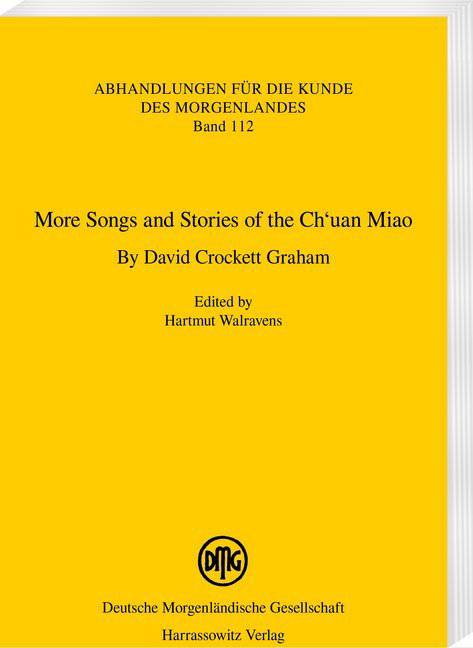
- Afhalen na 1 uur in een winkel met voorraad
- Gratis thuislevering in België vanaf € 30
- Ruim aanbod met 7 miljoen producten
- Afhalen na 1 uur in een winkel met voorraad
- Gratis thuislevering in België vanaf € 30
- Ruim aanbod met 7 miljoen producten
Zoeken
More Songs and Stories of the Ch'uan Miao
€ 132,45
+ 264 punten
Omschrijving
David Crockett Graham (1884-1961) was an American Baptist minister who went to China as a missionary in 1911. He was stationed at Siufu (Xufu) in Sichuan Province where he became acquainted with the local Chuan Miao, an ethnic group within the Miao people. Having obtained a Ph.D. in anthropology at the University of Chicago in 1927 he seriously studied their culture and folklore, and with the help of one of them, Xiong Chaosong, he collected and translated 752 songs and stories. This was mainly done after 1932 despite the fact that he was then transferred to Chengdu where he became head of the University Museum and professor at the West China Union University. Besides being a pioneering expert on the Chuan Miao, Graham also was an archaeologist of note and an outstanding zoological collector who assembled a huge amount of species for the Smithsonian Institution. In 1948 Graham retired to Colorado where he worked up his collections. He managed to get part of his Songs and Stories of the Chuan Miao published by the Smithsonian Institution in 1954 but to keep down costs he had to leave out 276 items which Hartmut Walravens, the editor of this volume, discovered at Whitman College, Walla Walla, Washington. This collection covers the same wide spectrum as the published collection and is a valuable complement. It comprises a more explicit, informative introduction, legends, mythological tales, religious chants, love and marriage songs, stories and folk-tales. The material was annotated by Wolfram Eberhard, the well-known Berkeley anthropologist.
Specificaties
Betrokkenen
- Uitgeverij:
Inhoud
- Aantal bladzijden:
- 330
- Taal:
- Engels
- Reeks:
- Reeksnummer:
- nr. 112
Eigenschappen
- Productcode (EAN):
- 9783447110013
- Verschijningsdatum:
- 21/03/2018
- Uitvoering:
- Paperback
- Formaat:
- Trade paperback (VS)
- Afmetingen:
- 154 mm x 220 mm
- Gewicht:
- 511 g

Alleen bij Standaard Boekhandel
+ 264 punten op je klantenkaart van Standaard Boekhandel
Beoordelingen
We publiceren alleen reviews die voldoen aan de voorwaarden voor reviews. Bekijk onze voorwaarden voor reviews.






